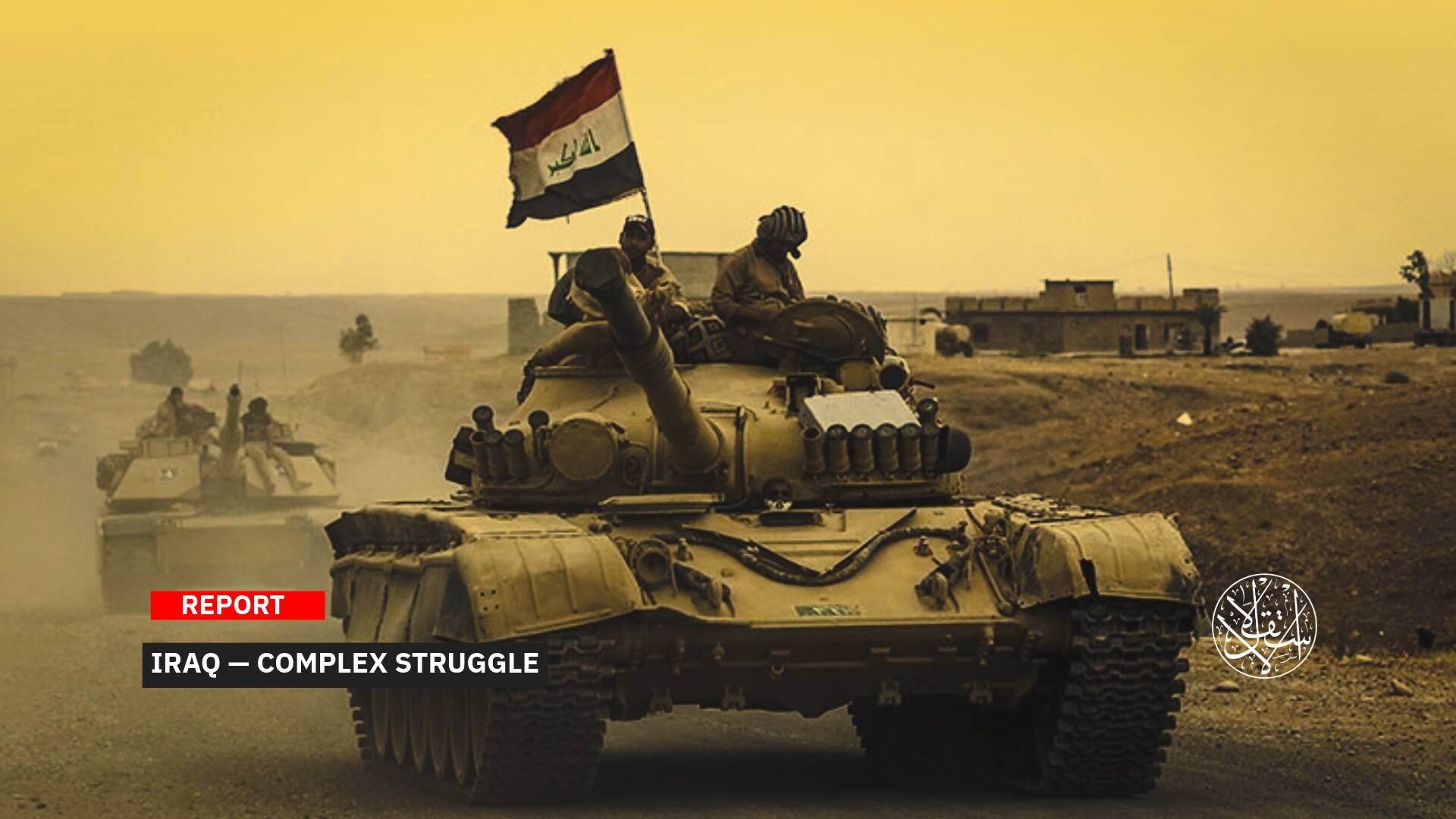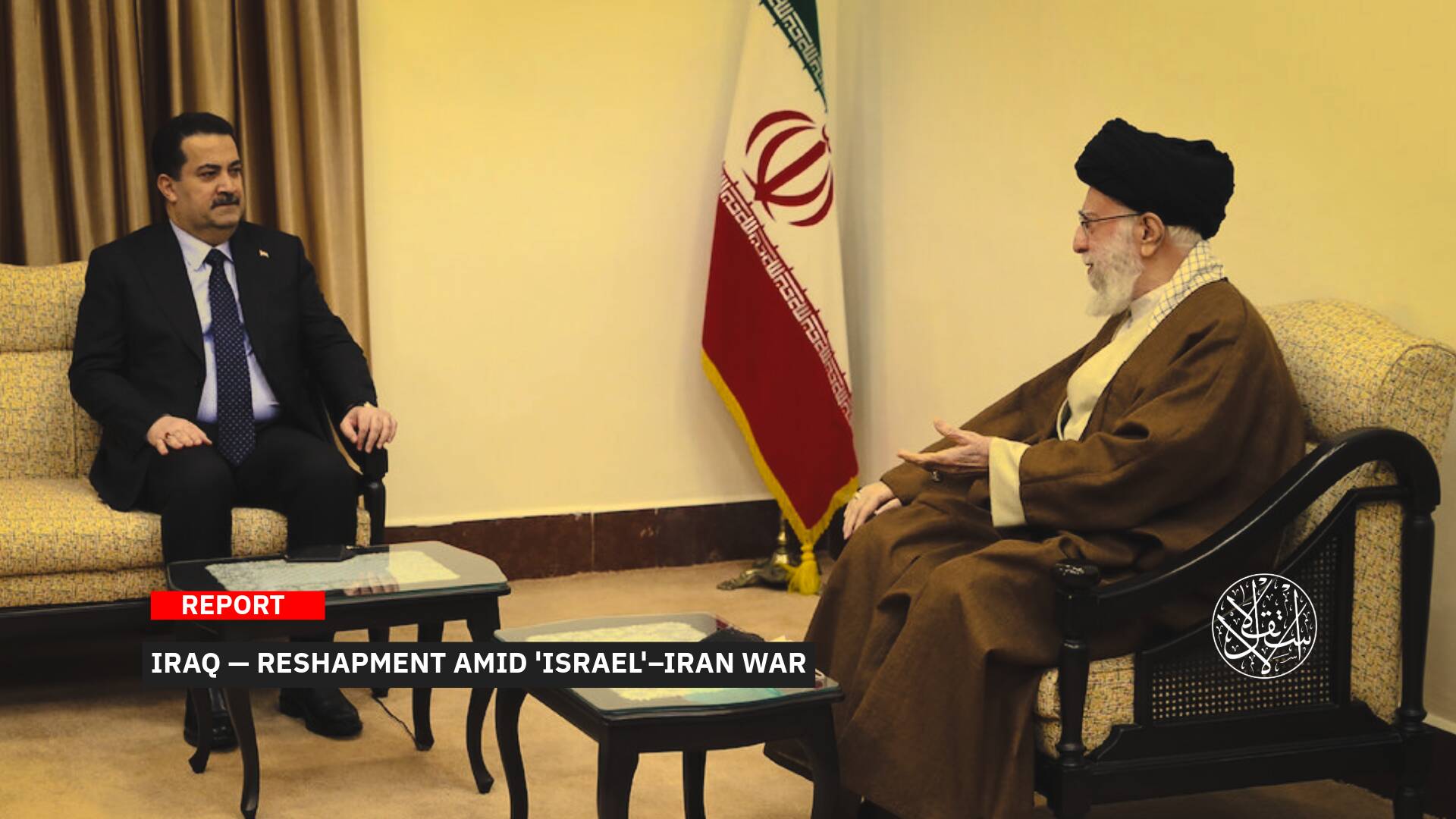Hezbollah’s Disarmament Faces Major Obstacles Amid Regional Tensions

Netanyahu urges Hezbollah’s disarmament as Lebanon forms a new government.
As Lebanon’s parliament grants Prime Minister Nawaf Salam’s government a vote of confidence with 95 out of 128 votes, President Joseph Aoun reaffirms the country’s commitment to UN Resolution 1701, which mandates the disarmament of armed groups and the consolidation of weapons under state control—a process he claims has already begun in “informal camps.”
Meanwhile, Israeli Prime Minister Benjamin Netanyahu, speaking alongside U.S. Secretary of State Marco Rubio on 16 February 2025, has called for the full implementation of UN Resolutions 1559 and 1701, demanding Hezbollah’s disarmament—though he made clear that "Israel" would prefer to take matters into its own hands if necessary.
Passed in 2004, Resolution 1559 urges Lebanon to extend its sovereignty across all its territory, dismantle and disarm all militias, and expel all foreign forces.
Resolution 1701, issued in 2006 to end the Israeli-Hezbollah war, reinforces these demands, calling for the Lebanese army to be deployed south of the Litani River.
With shifting geopolitical dynamics and mounting regional tensions, will Lebanon’s new government succeed where so many before it have failed?

Disarmament Debate
Following Prime Minister Nawaf Salam’s government securing a confidence vote on February 25, 2025, Lebanese President Joseph Aoun stated in a press interview that true sovereignty means the state alone must hold the authority over war and peace, as well as a monopoly on arms.
Pressed on the issue of disarmament, Aoun told Asharq al-Awsat on March 2 that achieving this goal depends on prevailing circumstances but stressed that with the army now deployed across Lebanese territory, "it is no longer acceptable for anyone other than the state to defend the land."
Acknowledging the political realities at play, Aoun maintained that "politics is shaped by circumstances," but reiterated that consolidating all arms under state control remains the ultimate objective. "The government has just won confidence," he added. "Now, the work begins."
President Joseph Aoun has reiterated Lebanon’s commitment to implementing UN Security Council Resolution 1701, stressing that the presidency, cabinet, and parliament have upheld this pledge since 2006. “This is not up for debate,” Aoun said, adding that priority has been given to the south, where efforts are already underway.
Speaking on broader disarmament measures, Aoun noted that unofficial armed camps outside designated refugee areas have been dismantled.
“We are focusing on the south with full cooperation from all sides,” he explained. “Later, we will move to the next phase—step by step, to achieve our goal.”
While reaffirming the state’s commitment, Aoun avoided setting a timeline, emphasizing the need for “speed, not haste.” As for cooperation from key players, he described the response in the south as “complete” and praised Hezbollah’s deputy leader, Naim Qassem, for referencing the role of the state and acknowledging the army’s significance in safeguarding national security.
Lebanese President Joseph Aoun has not ruled out the possibility of U.S. pressure on Lebanon but insists that any response must be based on national consensus.
“So far, we have not seen any major pressure, to be honest,” he said. “What is being asked of us is the implementation of Resolution 1701 and key reforms—these are demands, not coercion.”
Meanwhile, Prime Minister Nawaf Salam, in his ministerial statement before parliament, underscored the necessity of state monopoly over arms and the full, unselective implementation of Resolution 1701.
“The state alone has the right to bear arms,” he affirmed. “We seek a nation that controls decisions of war and peace, one that upholds the constitution and national accord without delay.”
Salam also reaffirmed his government’s commitment to “taking all necessary measures to liberate Lebanese territories still under Israeli occupation and to assert state sovereignty over all its lands through its own forces alone.”

The Fall of the Triad
In a notable shift in rhetoric, Prime Minister Nawaf Salam’s ministerial statement omitted any mention of the so-called “Resistance” clause, effectively sidelining the long-standing “Army, People, Resistance” formula that had featured in previous governments’ declarations.
For years, this equation had been embedded—explicitly or implicitly—within ministerial statements, in an attempt to grant legitimacy to the weapons of "Hezbollah," for which calls for disarmament are increasing, especially in light of the current phase.
Despite this change, "Hezbollah," through its parliamentary bloc, granted confidence to the new government, a move that reflects its cautious approach to internal and regional shifts, following the losses suffered by the party and the Iranian project in the Middle East.
In this regard, Lebanese political analyst George al-Aqouri believed that the absence of the terms previously used to legitimize "Hezbollah's" weapons in the ministerial statements is a natural development given the current phase.
Al-Aqouri stated in an interview with al-Hurra website that "the party itself dropped its well-known triad when it fought the October 8 war alone, without consulting the army or the people through the parliamentarians who gave it their votes."
“The formula was never more than a political cover, justifying Hezbollah’s unilateral control over armed decisions without any genuine partnership with state institutions or the public,” al-Aqouri argued.
He added that the current phase has rendered the triad obsolete—particularly under Salam’s government, which was formed with a clear orientation toward consolidating state control over arms, in line with the constitution, the Taif Agreement, international resolutions, and President Joseph Aoun inaugural address.
Al-Aqouri noted that this shift effectively signals the closing of Hezbollah’s military chapter.
“The party would never have accepted the removal of ‘Resistance’ from the ministerial statement had it secured a victory in its recent confrontation with Israel,” he argued.
He believes Hezbollah’s acceptance of a ceasefire stems from its inability to dictate the pace of the conflict. Its agreement to the truce, he suggested, reflects a clear alignment with international resolutions, including UN Resolution 1701.
“The party’s capitulation highlights its recognition of the limits of its military capabilities,” al-Aqouri added.
He pointed to remarks made by Hezbollah’s deputy secretary-general, Naim Qassem, at Hassan Nasrallah’s funeral, where he admitted that their acceptance of the agreement was due to the lack of any political or military path forward in the confrontation.
The removal of Hezbollah’s long-standing formula from the ministerial statement, al-Aqouri emphasized, is not merely a domestic demand from sovereignty-focused factions.
It also comes in response to mounting international pressure to dismantle Hezbollah’s military role as a prerequisite for restoring confidence in Lebanon and unlocking substantial foreign aid—alongside the broader requirement for economic and governance reforms.
This shift, he noted, has been unfolding over the past few governments. While the formula was not always explicitly discarded, it had gradually been replaced with a more general affirmation of Lebanese citizens’ right to resist Israeli occupation, repel aggression, and reclaim occupied territories.

Gradual Disarmament
In a report published on February 27, 2025, the International Crisis Group warned that Lebanon’s fragile ceasefire remains precarious, raising questions about the broader consequences of the conflict—including the extent to which Hezbollah’s opponents will persist in their demand for its disarmament under the terms of the agreement.
The report noted that the war with "Israel" has reignited debate over Hezbollah’s military role in Lebanon.
While the group insists it emerged victorious despite "Israel’s" superior firepower, its critics argue that Hezbollah bears responsibility for dragging the country into a devastating war—only to later accept a truce under harsh conditions.
Despite the heavy blows inflicted by Israeli strikes, Hezbollah’s military infrastructure has not been entirely dismantled, the report observed.
The group retains a formidable fighting force compared to its domestic rivals, and alongside its key ally, the Amal Movement, it continues to wield significant political influence within both parliament and the newly formed government, even after making certain concessions.
The International Crisis Group warned that "attempting to forcibly disarm Hezbollah will not succeed, and it is unlikely that the group will yield to such pressure."
The group's report highlights several reasons why Hezbollah refuses to give up its weapons. One key factor is the lack of trust in the Lebanese state, as Hezbollah views the state as incapable of protecting the country from external threats, leading the group to see resistance as essential for Lebanon’s defense.
Despite significant losses, Hezbollah still enjoys strong support within the Shiite community, which strengthens its position in refusing to disarm.
The report advises Lebanese political forces to proceed cautiously and gradually on the issue of disarming Hezbollah to avoid escalation, urging foreign nations to refrain from direct involvement in this matter.
It also emphasizes that strengthening Lebanon's stability requires cooperation with the new government to provide humanitarian aid and support reconstruction efforts.
Donor countries could assist the Lebanese army by offering financial allocations to address low salaries and applying diplomatic pressure on all parties to adhere to the terms of the ceasefire agreement.












